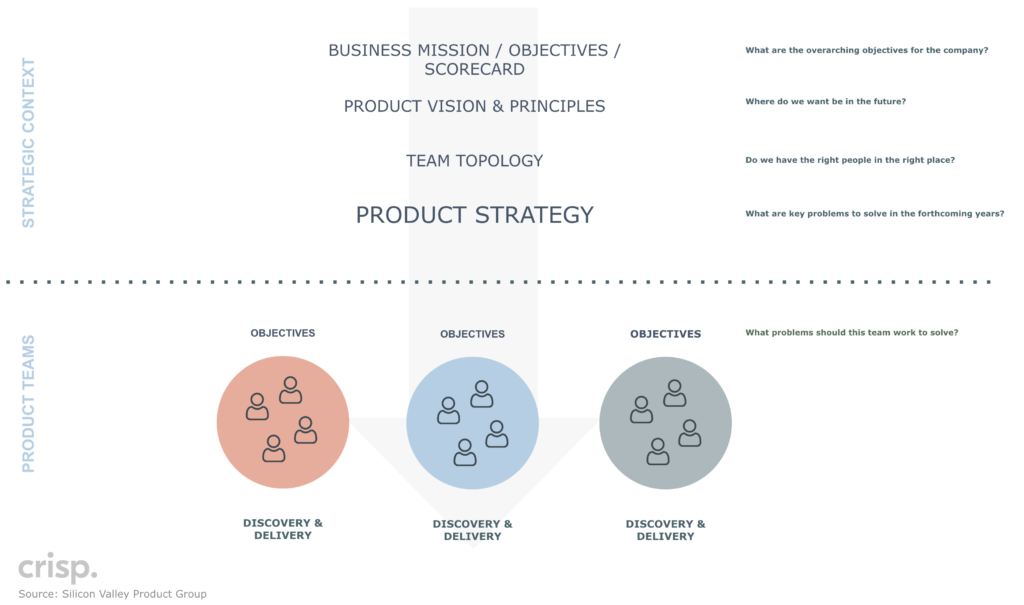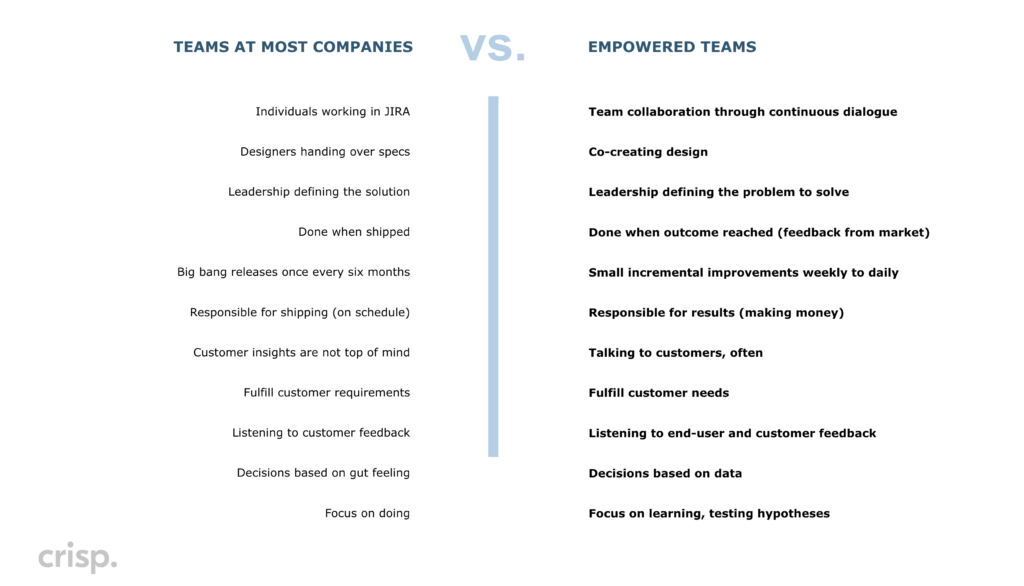Empowered Teams Program
Many business leaders worldwide have read the seminal book “Empowered – Ordinary People, Extraordinary Products” by Marty Cagan and Chris Jones. The contents have inspired companies to shift their perception of how to govern product development, from an “IT-centric” to a customer-centric and goal-oriented one. This requires a radical switch in mindset for teams to change from “doing” to being responsible for results.
The key message is to empower teams and individuals to solve problems rather than provide them with solutions to build. The primary technique is for leaders to spend way more time coaching and nurturing a culture of experimentation.

This program is set up to help product and technology organizations in their quest to be more Empowered. The focus of the program is on the “how”, not the “why” and the techniques and tactics that teams can use to pay more attention to “Discovery” rather than constantly being in a Delivery mode, ultimately making them accountable for results.
The fundamental aspects that the program addresses are the necessary shifts needed to transform (source):
- Changing how you build & deploy
- Changing how you solve problems
- Changing how you decide which problems to solve
The program is 20% theory and 80% practice of techniques.

Modules
The training consists of 7 half-day modules over the course of three to five months. As a starting point of the program, each team or individual will write a “Change Challenge”, a contract that will measure the ROI of the training. Coupled with the training, participants can also book coaching sessions with the trainers.
Module 1: Introduction
- Introduction to Empowered Teams
- Leading change
- Change challenge
- Buddy program
Module 2: A path to Empowered teams
- A path to Empowered Teams
- Case studies
- Architecture & dependencies
- Team topologies
Module 3: Strategy to action
- Product vision
- Coherence
- 7 powers + DHM: Delight customers in hard-to-copy, margin-enhancing ways
- Team objectives -> backlog -> roadmap -> experiments
Module 4: Leading product teams
- High-performing teams
- Difference between groups and teams
- The roles within a product team
Module 5: Product Discovery, part 1
- Biases & traps
- Case studies
- Principles
- The Holistic Product Discovery framework
- Risk Mapping
- Business modeling
Module 6: Product Discovery, part 2
- Connecting Discovery & Delivery
- User Story Mapping
- Design Studio – Collaborative brainstorming
Module 7: Closing
- Review Change Challenge & individual learning
- Futurespective
- Building a community of practice
- Certificate of completion
Example of a change challenge
Setup
- 7 half-day sessions
- Remote or in-person
- One-on-one individual coaching
NPS
The training has thus far received an NPS score of 100.
Participant quotes
“Very Collaborative format – loved learning from others”
“You both covered so much material and did an excellent job of using the MIRO board and breakout groups. I don’t know how you could do much better.”